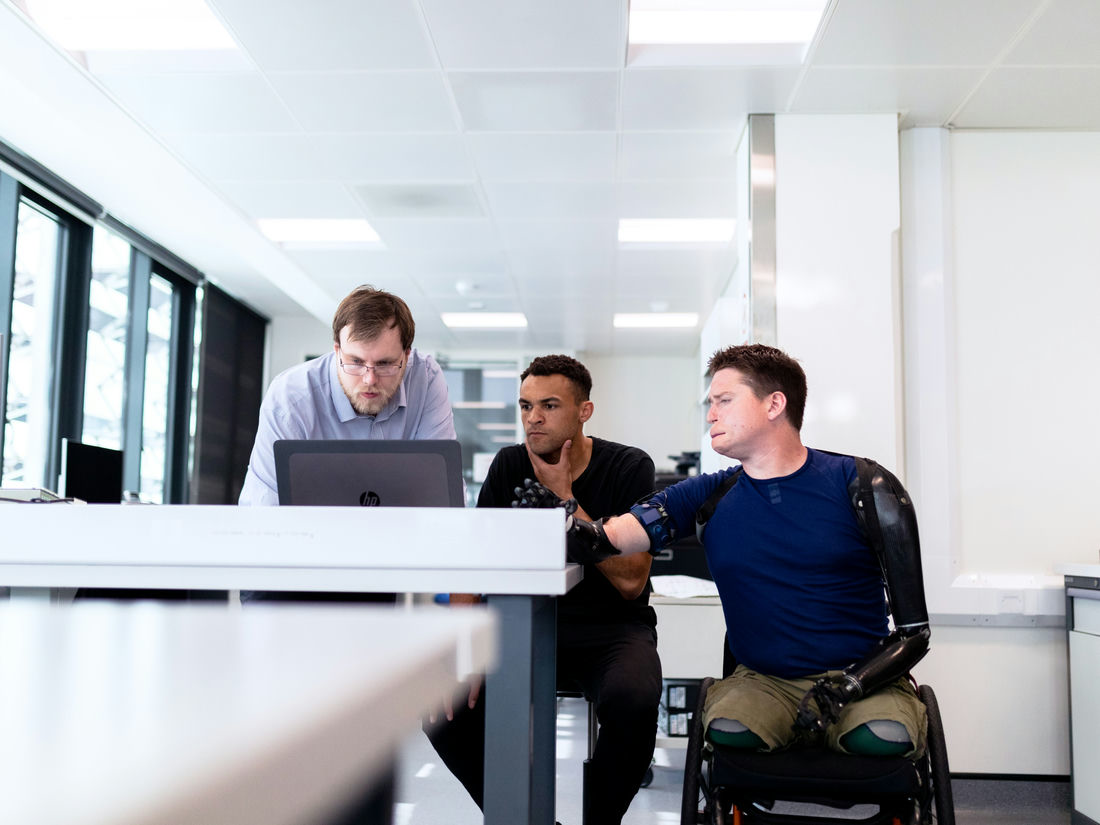Menu


23% of working age adults in the UK and around 1 billion people globally live with some form of disability. This means that there’s a good chance you have someone with a disability working in your organisation. But what can you do to make your office more accessible and inclusive for everyone?

Disabilities are physical, mental, sensory, or intellectual conditions that significantly impact a person’s daily activities and interactions. They can be present from birth or acquired through illness, injury or ageing. These conditions can make daily activities and interactions more challenging. Understanding and accommodating these needs are essential for creating inclusive and accessible environments in workplaces and communities.
Disabled people are almost twice as likely to be unemployed as non-disabled people, and 3 times as likely to be economically inactive.
– Scope
With the employment rate of disabled people at 53%, compared to 82% of non-disabled people there’s still work to be done to pave the way for more inclusive workplaces. Check out our top tips.
An often overlooked area in improving workplace accessibility is the provision of private spaces. These are great for those with a number of different disabilities. Those with limb differences who wear prosthetics may appreciate having a space where they can take breaks from wearing. There are a number of other mental and physical disabilities where people will appreciate having a private space where they can self regulate, or take breaks.
These kinds of spaces help make your office more inclusive for a number of different disadvantaged groups. For example a private space could be used by people who are breastfeeding, those who use chest binders for gender dysphoria, those undertaking medical procedures such as GRT, HRT, or IVF and people of faith who need space to pray.
This is particularly important for those who work in open plan offices. Having space away from music and conversations as well as visual stimulation can be really important for some neurodivergent people. Blind people may also appreciate having a space away from noises which they may find particularly distracting or confusing.
Even those without official diagnoses can struggle to work effectively in busy open-plan offices. For this reason thinking about where you can create calmer spaces can be really important. You may also consider helping your employees with noise cancelling headphones as these can be expensive.
Although all workplaces in the UK are legally obligated to have accessible toilets, it’s worth thinking about whether the toilets you have are accessible and inclusive for all your people. For example, it might be useful to include a sharps bin, so that those who need to are able to safely dispose of used needles rather than having to bring them with them.
It’s also worth remembering that accessible toilets aren’t accessible to everyone. The changing places campaign has lots more information. One thing we encourage everyone to do is to speak openly with your staff and with those you’re recruiting to see what their individual needs are. Ideally this would be done anonymously as people may, understandably, not be too keen to share their toileting needs with their employer.
Work-life balance is important for everyone – so make sure you think about social time, too. Many modern workplaces now have staff or break rooms, where people are encouraged to spend time while not working. Ensuring these spaces are safe and inclusive for everyone is vital. Those with mobility aids such as wheelchairs or crutches need to be able to safely access all areas and even make themselves a cup of tea.
One extra thing to think about is keeping fridges hygienic and safe. We’ve all been in workplaces where fridges are cluttered with out of date foods and stuffed to breaking point. However, this may make them less safe for those who need to store vital medicines. It might be worth considering a dedicated fridge for accessibility, or have clear policies around the use of the fridge.
Another way you can make your spaces more accessible is by training your team. Helping everyone in your organisation to understand how they can be part of making the office more accessible to others, and spotting potential hazards, problems or issues, will mean that you’ve got more people to support your team.
Ensuring that any first aid responders, fire marshals, and even mental-health first aiders are fully trained in a variety of mental and physical differences will help make your office space safer for everyone.
Understanding the correct language to use is also important in order to avoid ‘othering’ poeple with disabilities.
Assistive technology can be a game-changer for employees with disabilities. Screen readers, voice recognition software, and ergonomic keyboards can help those with visual, auditory, or motor impairments. Providing these tools ensures that all employees have the resources they need to perform their jobs effectively.
Accessibility needs may change over time making it important to continually listen to your people and adjust your office environment appropriately to meet changing needs. Use feedback from onboarding surveys to make informed decisions about necessary modifications for new employees.
Why not check out our awareness day calendar for ideas on inclusive workplace initiatives and companywide support.
Related articles
Get in touch for a quick chat with one of our experts to see how we can help you.
Take our benchmark to map where your organisation is now, and where it needs to be.